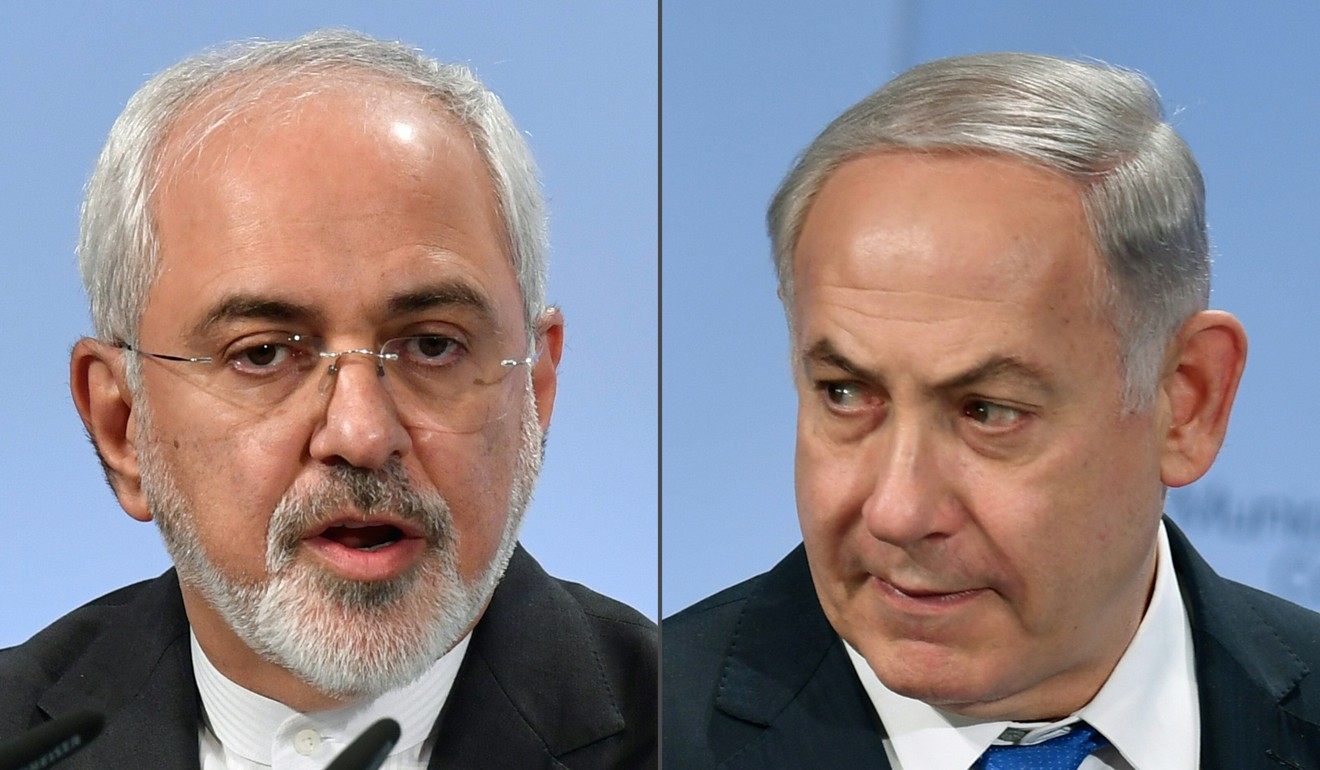
Netanyahu, waving ‘Iranian drone wreckage‘, urges West not to appease Tehran
‘Take back with you a message for the tyrants of Tehran: Do not test Israel’s resolve’
Israeli Prime Minister Benjamin Netanyahu, brandishing what he said was wreckage from an Iranian drone, used an annual security conference in Munich to warn of Tehran’s alleged attempts to dominate the Middle East, and Israel’s resolve to prevent it.
Iranian aggression “is in my judgment the greatest threat to our world,” Netanyahu said Sunday, urging leaders not to repeat the mistakes of Munich negotiators who did not Adolf Hitler in 1938 for fear of provoking a war. Rather than preventing war, the Israeli leader said, their inaction “made a wider war inevitable and far more costly.”
Netanyahu has used other high-profile platforms – including the US Congress and United Nations General Assembly – to highlight the threat if Iran develops nuclear weapons. On Sunday, he focused equally on Iran’s conventional military entrenchment in Syria and the dangers it creates.

Israel will act not just against Iran’s proxies that are attacking us, but against Iran itself
Netanyahu said Israel has stayed on the sidelines of the Syrian war to this point, acting only to stop transfers of advanced weapons bound for Hezbollah, Iran’s proxy militia and Shiite political party in Lebanon. But he said that could change if Iran establishes a new reality on the ground in Syria.
If Syrian President Bashar al-Assad allows the Iranian military to entrench itself in his country, “then obviously he is challenging us to a different position than we’ve had,” Netanyahu said. Israel is “absolutely resolute in our determination to stop and roll back the aggression of Iran’s regime.”
Israeli officials believe the US and Europe have yet to fully grasp the likelihood of military escalation. US reluctance to enter the war in Syria has left it with insufficient force on the ground to dictate terms to Iran. Many Arab nations share Netanyahu’s concern over the Iranian threat, but won’t publicly support Israel for domestic political reasons.
Russia has more leverage to assure Israeli interests in Syria, and Netanyahu has talked with Russian President Vladimir Putin to ensure that Israeli jets can attack when necessary in Syria without clashing with Russian forces. But Moscow appears to be prioritising ties with Iran, which is emerging as its strategic partner.
“They like Israel, but they need Iran,” Amos Gilad, who recently stepped down as director of political-military affairs at Israel’s defence Ministry, said in an interview. “They won’t remove Iran from Syria for two reasons: First of all it doesn’t suit their policy, and second of all they can’t.”
Elena Suponina, a Middle East expert at the Russian Institute for Strategic Affairs, a research group that advises the Kremlin, said escalation in Syria isn’t in Russia’s interests. But, she said, “Netanyahu is certain that he has the full support of the Trump administration, which may drive the Israelis into action.”
Netanyahu’s calls to “fix or nix” the international deal to curb Iran’s nuclear programme have failed to sway much of the transatlantic security establishment represented in Munich. He’s hoping that a warning on the dangers of escalation in Syria – already the source of a refugee shock in Europe – will get a more sympathetic hearing.
This month alone, US aircraft killed as many as 200 Russian mercenaries as they attacked Kurdish forces in eastern Syria; Turkey threatened to expand its invasion of northern Syria to take on Kurds embedded with US advisers; and Israel shot down an Iranian drone that entered its airspace.
Last week, for the first time since 1982, Israel lost a combat aircraft to hostile fire as it returned from air strikes in Syria. Israel’s retaliation in the incident, which began with the reported infiltration of an Iranian military drone into Israeli territory, destroyed as much as half of Syria’s air-defence system, according to the Israel Defence Forces.
In Munich Sunday, Netanyahu held up a piece of metal he said came from the drone, and asked if Iranian Foreign Minister Mohammad Zarif recognised it. Iran denies it sent the drone into Israel.
“Take back with you a message for the tyrants of Tehran: ‘Do not test Israel’s resolve,’ “ Netanyahu said. “Israel will act not just against Iran’s proxies that are attacking us, but against Iran itself.”

